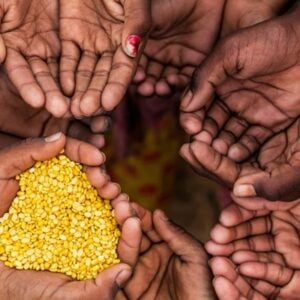The World Food Programme (WFP) has warned that half a million people in Gaza are on the brink of famine, with alarming levels of acute malnutrition being reported. Despite ongoing efforts, only 47 percent of the daily target food supplies are reaching those in need. The agency stressed that a ceasefire is essential to allow aid distributions, hot meal programs, and bakery services to resume. Without this, organized food delivery remains impossible.
The UN Relief and Works Agency for Palestine Refugees (UNRWA) highlighted that children in Gaza are unable to begin the new school year, instead spending their days searching for water and food while their schools have become overcrowded shelters. The loss of three years of education further deepens the humanitarian crisis.
Meanwhile, the Ministry of Health reported five deaths from starvation within 24 hours, including two children, underscoring the urgent need for large-scale and consistent aid. UN Spokesperson Stéphane Dujarric emphasized the necessity of opening all possible crossings and routes to reach the 2.1 million people in Gaza, half of whom are children. Although some aid missions went ahead with Israeli coordination, restrictions and delays continue to hamper the delivery of critical supplies.
Mr. Dujarric welcomed Israel’s decision to lift its five-month ban on shelter supplies, but warned that plans for expanded military operations in Gaza City could worsen displacement, forcing more people into already overcrowded and under-resourced areas.
In South Asia, UN Secretary-General António Guterres expressed deep sorrow over deadly flash floods in India and Pakistan, which have claimed hundreds of lives and left many more injured or missing. At least 60 people were killed in India after floods swept through a Himalayan village, while in Pakistan’s Buner district alone, more than 200 deaths were reported. The UN stands in solidarity with those affected and has offered support, though no formal request for assistance has been made by authorities.
In Somalia, the UN Office for the Coordination of Humanitarian Affairs (OCHA) warned that severe drought combined with drastic funding cuts is worsening the crisis. Food assistance has been reduced, health centres are shutting down, and malnutrition is on the rise. Currently, 4.6 million people face acute food insecurity, and another two million are at risk due to aid reductions. One million Somalis are already going without food assistance each month, while at least 150 medical facilities have been affected, leaving hundreds of thousands without care. OCHA stressed that funding cuts have forced aid agencies to reduce their target reach by 72 percent, warning that without renewed international support, more lives will be lost and progress reversed.







